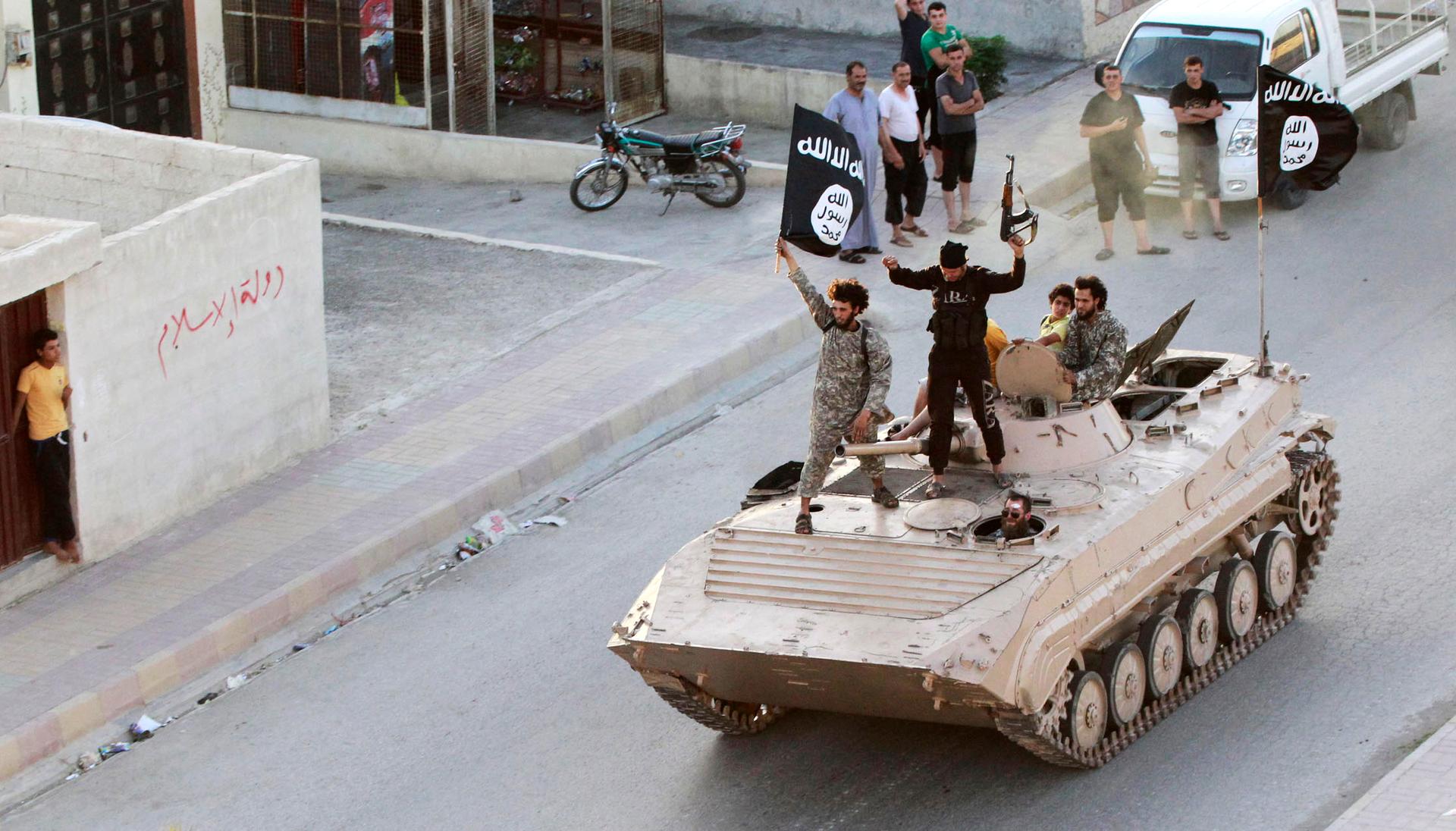Militant Islamist fighters hold the flag of ISIS while taking part in a military parade along the streets of northern Raqqa province in this June 30, 2014 file photo.
Oil prices plummeted below $50 for the first time in five years on Monday, but the collapse doesn't seem to be hurting ISIS' bottom line.
The group, which calls itself the Islamic State, reportedly boasts a $2 billion budget for the coming year — with a $250 million surplus. Those numbers, which were first reported by Qatari newspaper al-Arabi al-Jadeed, took Joshua Landis by surprise.
"Most of the projections back in September were that ISIS was making between one and three million dollars a day," says Landis, the director of the Center for Middle East Studies at Oklahoma University. "[That] adds up to about a billion dollars in a year — and here it is, two billion. Double that."
The collapse of oil prices would seem to be terrible news for ISIS. Landis says the group, which captured oil fields in Iraq and Syria, has been selling oil through proxies on the black market. "It's being funneled in plastic piping under the Turkish border and Turkish farmers get it on the other side," Landis explains.
There are many eager buyers, Landis says, even including ISIS' alleged main enemy: the Syrian government. "The US and Europe have very strict embargoes on all energy goods going into Syria," Landis says. "Syria is desperate for energy and oil and they buy it from intermediate brokers for a discount."
So why doesn't the oil collapse have ISIS in the red? Landis says ISIS also makes money from the territories it owns, which, according to him, are "the size of Britain, with seven or eight million living in it."
"It can levy taxes on them," he explains. "In Mosul, [Iraq], it's taking off from the salaries of state employees for water, electricity and so forth." ISIS has also set up a bank in Mosul, where residents have no other option but to deposit their money.
Still, given that the source of the budget projection is ISIS itself, Landis believes we should be skeptical. "They are trying to make themselves look like a real state," he points out.
The US and its allies have been working toward limiting ISIS's earnings. "They've put a great deal of pressure on states like Kuwait, Qatar and others to stop private citizens donating money to jihadists," Landis says.
Dealing with the oil fields is more complicated. According to Landis, the US doesn't want to bomb them; Iraq and Syria will presumably need them to rebuild if ISIS is dislodged. And as for halting the smuggling of oil, it's very difficult to do.
"This region is one of the poorest of Syria, and most people live on an income of under $2 a day," Landis says. "If you're living on that margin of poverty, you're going to buy and sell oil and try and make a buck."
Our coverage reaches millions each week, but only a small fraction of listeners contribute to sustain our program. We still need 224 more people to donate $100 or $10/monthly to unlock our $67,000 match. Will you help us get there today?
